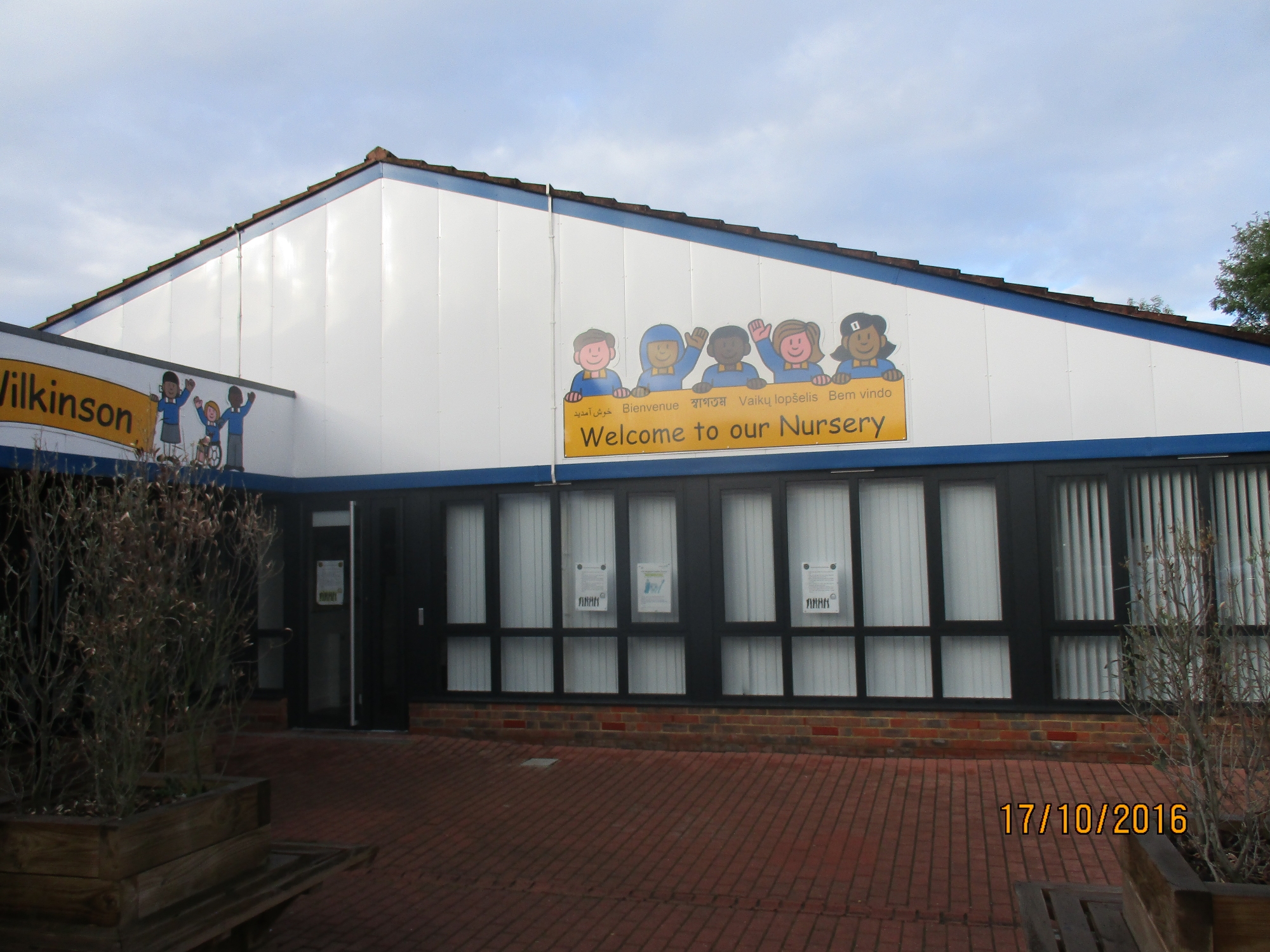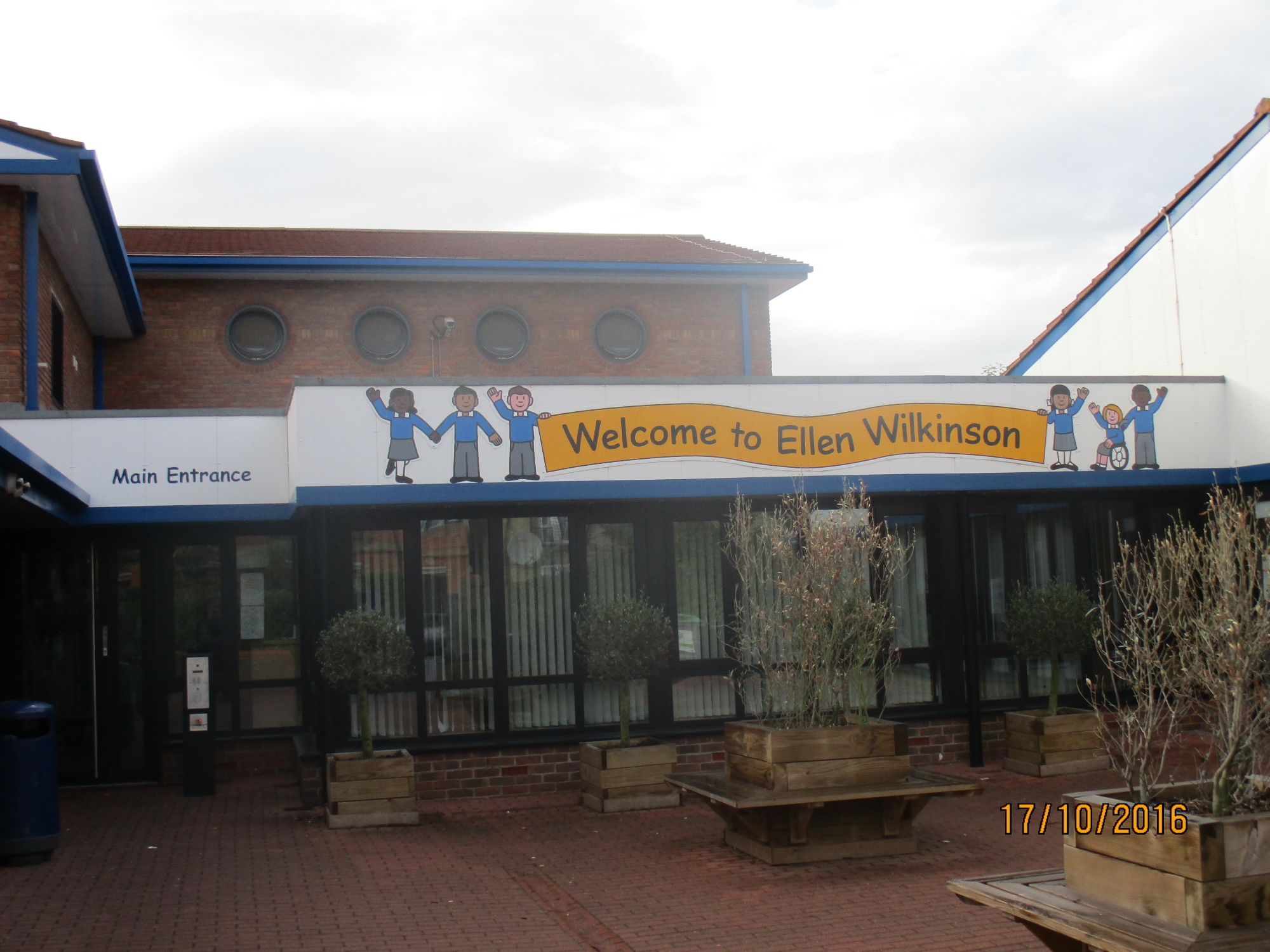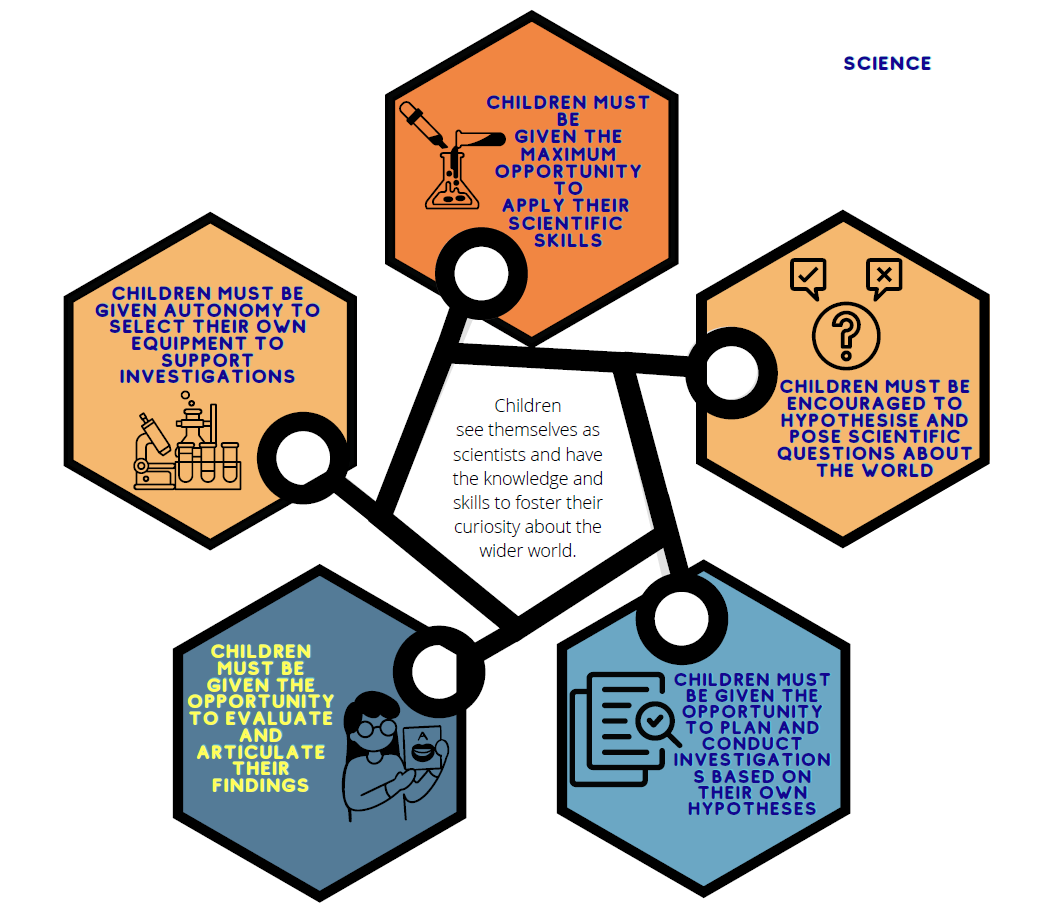Science
How we teach Science:
At EWPS, the National Curriculum Programmes of Study and the Early Years Foundation Stage Curriculum define our Science curriculum. As part of our long term planning, year groups are allocated Science topics throughout the year to ensure that children cover all aspects of science as they progress through the school. Lessons are supplemented with resources and real life experiences to maximise opportunities for practical work and cross-curricular links.
Due to COVID-19; children's learning has been impacted across the curriculum. In science, we have created a recovery curriculum, which ensured children were give the opportunity to learn topics that were missed. This enabled us to support closing the gap in children's scientific knowledge and working scientifically skills. The recovery curriculum is now progressing back on site and our science lessons are now returning to normal, where children are involved in highly practical and immersive lessons.
The practicalities of Science at EWPS
- Science is linked to practical experiences whenever appropriate.
- Visits, visitors and real life experiences are encouraged where possible;
- Teachers use a variety of teaching methods: modelling, demonstration, use of Internet links and video, experiments (both immediate and over time), research, discussion and debate;
- Topics are re-visited but expanded and developed as children move up the school;
- Cross-curricular links are made where possible – for example explanation texts in literacy or links to history and geography topics.
- Children are equipped with the knowledge of science careers and how equality and diversity is supported science.
- Every class should have a science display containing key vocabulary for their topic and investigative language relevant to the levels of the children in the class;
- Computing is used to support the delivery of science lessons.
- Children utilise collaborative learning strategies as part of the learning process in science;
- Children are encouraged to communicate their findings in a variety of ways, such as: diagrams, posters, mind maps, talking partners and group scribing;
- The development and monitoring of science is managed by the subject leader, which includes quarterly monitoring of planning, teaching and learning. Findings of monitoring are reported to Governors and areas for development form an action plan and are fed into the school development plan.
How we ensure access for all:
We encourage all of our learners to do their very best and to enable this we provide our children with the skills, experiences and knowledge to develop their scientific understanding. We ensure children are familiar with key vocabulary and concepts using word mats and encourage them to do their own learning at home to support them before the lessons begin. We provide our children with a variety of different resources to engage with to aid their experiments and investigations. To support those unable to articulate their findings in writing they are offered opportunities to express verbally their understanding and observations. We ensure children are given the opportunity to learn about pioneers in science from a around the world and from a range of backgrounds.
How we develop cultural capital:
Every year, we organise STEM week to encourage children to enhance their understanding and knowledge of the world of science. This gives them an opportunity outside of their lessons to experience science which includes cross curricular links with DT, computing and maths. During these weeks children have the opportunity to see how different subjects can merge into one. Not only do they learn about science from the past but also significant figure in the science world today. Children at our school regularly visit museums to take part in workshops as part of their topics in class. As part of our learning fares children often share their learning with different year groups and provide them with tasks to allow them to engage with practical activities they would have done in class.
How we know your child is succeeding:
Teachers write detailed medium/short term plans for science, which outline objectives and activities. We use a range of assessment techniques to find out what children understand and what we need to do to promote further development.
Examples of assessment as learning strategies:
- Assessment while a task is being carried out through discussion, specific questioning between child and teacher and closing the gap comments (verbal);
- Written feedback including closing the gap comments which the children have time to respond to;
- Assessment can be carried out through observations of children working in groups or individually;
- Our questioning aims to help children learn by encouraging them to think critically about what they have achieved;
- We use a range of assessments for example concept maps, quizzes and questionnaires throughout units of work;
- Progress in science is formally reported in the end of year school report;
- EYFS –Teacher assessment is used, mainly through observation and discussions with learners. Assessments are recorded against the Understanding the World criteria on the Early Years Foundation Stage Profile Assessment.
How you can support your child:
Children are naturally curious about the world around them. Parents and other caregivers can nurture this curiosity in children of all ages by creating a positive and safe environment at home for exploration and discovery.
- Acknowledge and encourage your children’s interests and natural abilities in science, and help them further develop their interests and abilities over time.
- Encourage and inspire your children to observe, ask questions, experiment, tinker, and seek their own understandings of natural and human-made phenomena.
- create scientific learning opportunities at home and in the community through outdoor play; participation in summer programs; or trips to parks, museums, zoos, nature centres, and other interesting science-rich sites in the community.
- Get involved in your childs learning and learn new things about science and technology. Take advantage of not knowing all the answers to your children’s questions, and embrace opportunities to learn science together.
- Dispel childrens negative stereotypes about scientists, and help them understand that anyone can have a career in science.
Curriculum map and key documents:
National Curriculum
Science programmes of study: key stages 1 and 2 National curriculum in England
If you would like to find out more information please contact:
Subject Lead
Carla Burchell
science@ellenwilkinson.newham.sch.uk




